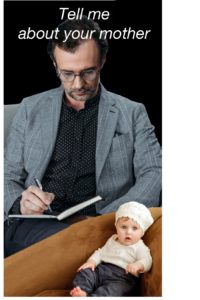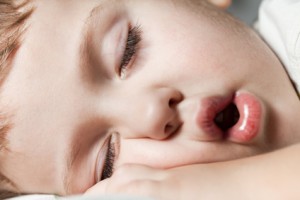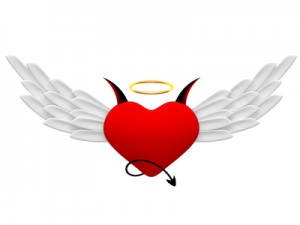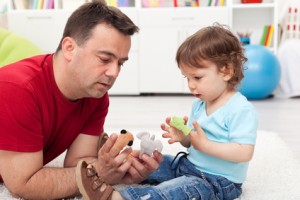Angel Griffin
 Therapy for autism has a long and sordid history. Psychoanalysts, following Sigmund Freud’s belief that abnormal behavior was caused by repressed childhood traumas, claimed to cure children who suffered from a “lack of attachment,” until therapists took over and made the same claims. The history of therapy for autism is shocking, but it has a happy ending. Some children with autism are cured by therapy. This type of therapy diverges radically from the misguided treatments imposed on innocent children for decades. These children made history, as true heroes do, and deserve our reverence and… Continue reading
Therapy for autism has a long and sordid history. Psychoanalysts, following Sigmund Freud’s belief that abnormal behavior was caused by repressed childhood traumas, claimed to cure children who suffered from a “lack of attachment,” until therapists took over and made the same claims. The history of therapy for autism is shocking, but it has a happy ending. Some children with autism are cured by therapy. This type of therapy diverges radically from the misguided treatments imposed on innocent children for decades. These children made history, as true heroes do, and deserve our reverence and… Continue reading
Getting an autistic child’s attention by drawing an object of interest close to a human face is a technique employed by Early Start Denver Model (ESDM) therapy. Dads instinctively do the same thing, shaking a rattle close to their own faces in front of their babies. Who invented the drawing an object of interest close to a human face technique, the Early Start folks in Denver, or dear old dad?
Parents intuitively use props, coaching their babies to pay special attention to faces, voices, and human activities. Parents are drafted by toddlers into playing hide-and-seek for the… Continue reading
 There was once a mother who took her autistic son to many doctors, used many different diets, and found one that really worked—the air diet—a diet of unobstructed breathing. After the doctor had cleared her son’s obstructed air passages in his nose and throat, her son was twice as responsive to his environment and learned twice as fast. The boy suffered from two conditions that interfered with his development—autism and sleep apnea. This is a true story.
There was once a mother who took her autistic son to many doctors, used many different diets, and found one that really worked—the air diet—a diet of unobstructed breathing. After the doctor had cleared her son’s obstructed air passages in his nose and throat, her son was twice as responsive to his environment and learned twice as fast. The boy suffered from two conditions that interfered with his development—autism and sleep apnea. This is a true story.
The power of the air diet is well understood by those who study sleep apnea—sleep that is constantly interrupted… Continue reading

Why would a person who is young, brilliant, and talented be incorrigibly lazy? Everyone tells him he has all the talent he needs to succeed, but he can’t figure out how other people do it.
He’s been told what an action plan is. But even thinking about planning is already exhausting. How can he line up his tasks so that the first step in the plan leads to a logical sequence of intermediate steps which would need to be taken in just the right order to achieve his goal? He knows where he is beginning; he… Continue reading
 Why should your Kindergartner take music lessons or practice playing an instrument when his chances of growing up to be a musician are next to nil?
Why should your Kindergartner take music lessons or practice playing an instrument when his chances of growing up to be a musician are next to nil?
According to neuroscientists, you probably have the very best tool for language comprehension training lying around your house somewhere. Practicing an instrument rigorously trains the entire brain via a feedback loop that moves from the cochlea of the ear, through the more primitive brain stem (responsible for coordination of physical movement) to the cortex (the locus of higher-level brain functions) and back around again.
Nothing can match musical training for fine tuning language… Continue reading
 At the age of five, all my son cared about was this silly game, Pokémon. Any reasonable parent should try to persuade a child, who wasted the entire day organizing the “bug-like” Pokémon figurines into neat little rows, to take at least a fifteen minute break from the game, and learn his letters, or, at the very least, go outside and play on the swing.
At the age of five, all my son cared about was this silly game, Pokémon. Any reasonable parent should try to persuade a child, who wasted the entire day organizing the “bug-like” Pokémon figurines into neat little rows, to take at least a fifteen minute break from the game, and learn his letters, or, at the very least, go outside and play on the swing.
I rued the day that I ever gifted him with the Pokémon game, which turned into such an all-consuming obsession! I tried persuasion. I tried bribery. Nothing would take his attention… Continue reading
 Ever felt guilty about expecting too much from your Aspergers child? Shouldn’t you indulge him because your heart is bursting with sorrow over his plight? It’s not his fault, so shouldn’t you be the one to adapt?
Ever felt guilty about expecting too much from your Aspergers child? Shouldn’t you indulge him because your heart is bursting with sorrow over his plight? It’s not his fault, so shouldn’t you be the one to adapt?
Not according to the young adults I know who have come to terms with their condition. They either rejoice in the payoffs from a heavy handed workload imposed on them as children, or wish they had been pushed to learn more as they grew up. The large percentage of autistics, who stand a good chance of recovery, don’t mind… Continue reading
 An article published in the July/August issue of Scientific Mind reported that up to 25% of people with autism (from the generation of Millennials, born between 1980-2000) eventually recover completely or become nearly indistinguishable from their peers as young adults.
An article published in the July/August issue of Scientific Mind reported that up to 25% of people with autism (from the generation of Millennials, born between 1980-2000) eventually recover completely or become nearly indistinguishable from their peers as young adults.
Studies were careful to exclude cases that did not meet true criteria for a solid initial diagnosis. These were genuinely autistic (not Aspergers) children who, having reached adulthood, demonstrated no trace of autism, or virtually no trace of autism.
There has been, and still is, a professional bias against full recovery. Because parents keep poor records of their interventions, professionals… Continue reading

